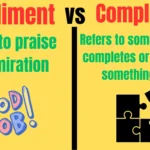Birthday greetings are a universal tradition, expressing joy and good wishes on someone’s special day. While “Happy Birthday” is the most commonly used phrase, you may have come across variations like “Happiest Birthday” or “Happiest of Birthdays.”
This guide delves into the correctness, usage, and cultural significance of these phrases, helping you craft the perfect birthday message.
Understanding the Phrase “Happiest Birthday”
The phrase “Happiest Birthday” is less conventional compared to the standard “Happy Birthday.”
It aims to convey an even greater level of happiness for the recipient’s special day. However, its usage raises questions about grammatical accuracy and appropriateness.
Origin and Usage
The origin of “Happiest Birthday” is not well-documented, but it appears to be a modern variation aiming to enhance the standard greeting. While it may sound more enthusiastic, it is less commonly used and can be perceived as non-standard or informal.
Misconceptions
One common misconception is that “Happiest Birthday” is a formal or traditional way of expressing birthday wishes. In reality, it is an attempt to add extra emphasis to the standard greeting but is not widely accepted or recognized in formal settings.
Grammatical Structure of Birthday Wishes
Understanding the grammatical structure of birthday greetings can help you use phrases correctly and avoid errors.
Superlative Adjectives
Superlative adjectives, such as “happiest,” are used to indicate the highest degree of something.
The structure typically includes a definite article (“the”) when used in sentences. For example, “The happiest birthday” would be more grammatically accurate than “Happiest birthday.“
Comparison of “Happy Birthday” and “Happiest Birthday”
- “Happy Birthday”: This is a simple, clear, and universally accepted greeting. It uses the adjective “happy” in its base form.
- “Happiest Birthday”: This variation uses the superlative form “happiest,” suggesting an extreme degree of happiness. It may sound awkward or overly enthusiastic to some.
Using ‘Happy Birthday’ as a Standard Greeting
The phrase “Happy Birthday” is the traditional and widely accepted way of expressing birthday wishes.
Historical Background
The tradition of saying “Happy Birthday” dates back to the early 19th century.
It became popular through various cultural and commercial channels, including birthday cards and songs.
Why It Remains Popular
- Clarity: “Happy Birthday” is straightforward and universally understood.
- Tradition: It aligns with long-standing customs and practices.
- Flexibility: Suitable for both formal and informal contexts.
The Role of Definite Articles with Superlative Adjectives
In English, definite articles like “the” are often used with superlative adjectives to clarify that something is the highest in a particular category.
Definition and Function
- Definite Article: Used to specify particular items or concepts.
- Superlative Adjectives: Indicate the extreme degree of a quality (e.g., “happiest,” “tallest”).
Examples
- Correct: “The happiest birthday ever.”
- Incorrect: “Happiest birthday.”
Using “the” with superlatives is grammatically precise, making the phrase more formal and clear.
Cultural Significance of Birthday Greetings
Birthday greetings vary across cultures, reflecting different customs and traditions.
Cultural Practices
- Western Cultures: Often use “Happy Birthday” in both formal and informal settings.
- Asian Cultures: May incorporate traditional wishes and blessings specific to their culture.
Language and Expression
- Language: Different cultures have unique ways of expressing good wishes, affecting how phrases like “Happiest Birthday” are received.
- Expression: The level of formality and enthusiasm can vary based on cultural norms.
When Is It Appropriate to Say “Happiest of Birthdays”?
The phrase “Happiest of Birthdays” can be used in specific contexts where an extra level of enthusiasm is appropriate.
Situations for Use
- Informal Settings: Among close friends or family where a casual tone is acceptable.
- Creative Messages: In cards or social media posts where creativity and personalization are valued.
Formal Contexts
In formal settings, sticking with “Happy Birthday” is generally preferred to avoid any perception of being overly casual or unconventional.
Alternatives to Wishing “Happiest Birthday”
There are many ways to convey birthday wishes that vary in tone and formality.
Alternative Phrases
- “Wishing You a Wonderful Birthday”
- “Have a Fantastic Birthday”
- “Hope Your Birthday is Filled with Joy”
When to Use Each Alternative
- Formal Events: Use formal phrases like “Wishing You a Wonderful Birthday.”
- Casual Gatherings: Opt for more relaxed expressions like “Have a Fantastic Birthday.”
Conveying Best Wishes in Varied Formats
Birthday wishes can be delivered in various formats, each with its own style and tone.
Formats
- Cards: Classic and personal; ideal for heartfelt messages.
- Social Media: Casual and public; great for informal greetings.
- In-Person: Direct and personal; suitable for close relationships.
Tips for Personalization
- Consider the Recipient: Tailor your message based on the recipient’s personality and your relationship with them.
- Add Personal Touches: Include specific details or memories to make your message more meaningful.
How to Avoid Misinterpretation in Birthday Messages
Clear and thoughtful communication is essential to ensure your birthday wishes are well-received.
Common Pitfalls
- Ambiguity: Avoid vague or unclear messages that might confuse the recipient.
- Overenthusiasm: Ensure that the level of enthusiasm matches the context and your relationship with the recipient.
Ensuring Clarity
- Be Direct: Use clear and straightforward language.
- Consider Tone: Match your tone to the occasion and your relationship with the recipient.
The Etiquette of Capitalizing ‘Happy Birthday’
Proper capitalization can affect the professionalism and clarity of your birthday message.
Capitalization Rules
- Correct: “Happy Birthday” should always be capitalized.
- Incorrect: “happy birthday” may appear informal or careless.
Importance
Capitalization helps maintain the standard and respectful nature of the greeting, especially in written formats.
Extending Birthday Wishes to Multiple People
When addressing a group, the format and phrasing of your birthday wishes may vary.
Phrasing for Groups
- General Wishes: “Wishing you all a wonderful birthday celebration!”
- Specific Wishes: “Happy Birthday to each of you; may your day be filled with joy!”
Examples
- Group Greeting: “Happy Birthday to the entire team. Enjoy your special day!”
- Individualized Greeting: “Happy Birthday to Sarah, Mike, and Anna. Hope you each have an amazing day!”
Addressing Belated Birthday Wishes Correctly
Belated birthday wishes require a thoughtful approach to convey sincere regrets and continued good wishes.
Proper Etiquette
- Acknowledge the Delay: “Sorry I missed your birthday; I hope it was wonderful.”
- Express Sincere Wishes: “Belated Happy Birthday! Wishing you joy and happiness in the year ahead.”
Examples of Belated Wishes
- Formal: “My apologies for missing your birthday. I hope it was filled with joy and laughter. Belated Happy Birthday!”
- Informal: “Oops, I’m late! Happy Belated Birthday! I hope your day was fantastic.”
Conclusion
Crafting the perfect birthday message involves understanding the nuances of language and cultural expectations. While “Happy Birthday” remains the most universally accepted greeting, phrases like “Happiest Birthday” and “Happiest of Birthdays” can be used creatively in appropriate contexts.
By considering the grammatical structure, cultural significance, and personal touch, you can ensure your birthday wishes are both meaningful and well-received.
Feel free to use this guide to enhance your birthday greetings and make every celebration memorable.

Amelia Harris, a passionate educator, simplifies English grammar and vocabulary for learners of all levels. With her engaging style, mastering English has never been easie




